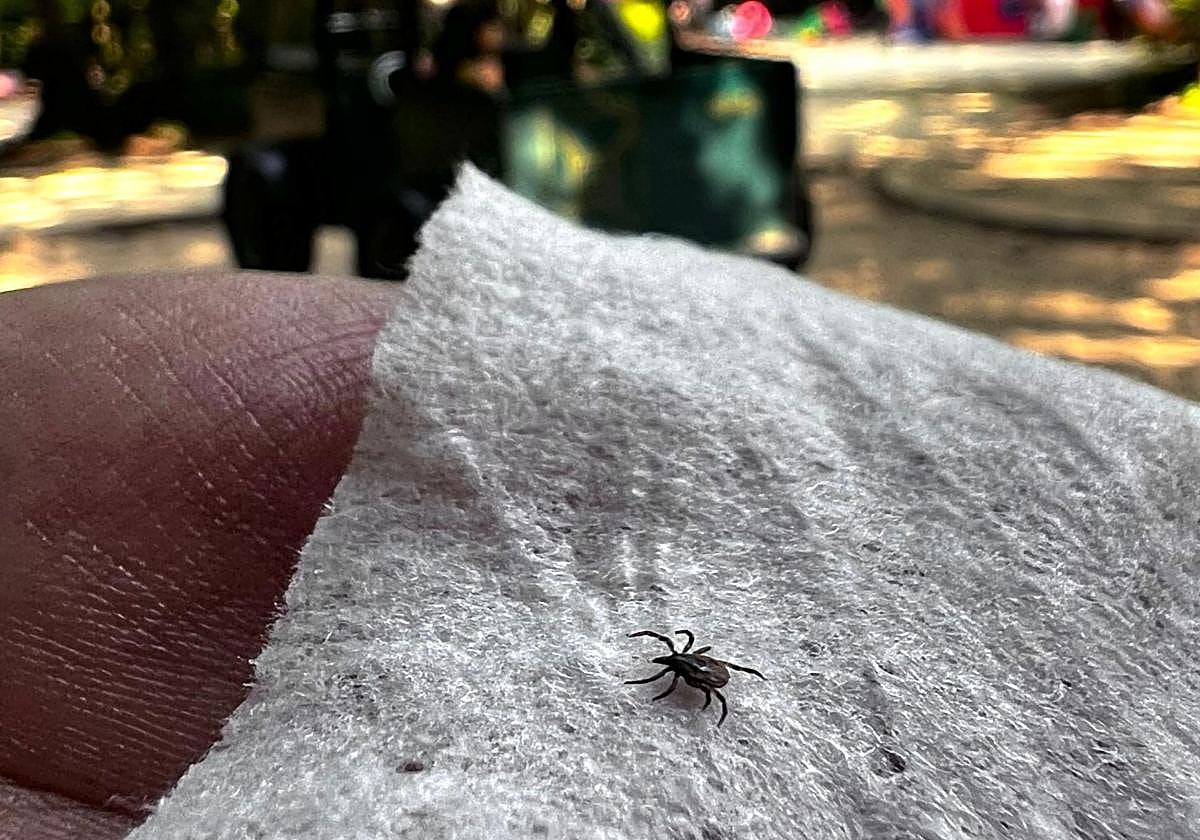How to avoid tick bites this summer
High temperatures help these parasites to proliferate, making them a health risk because of the diseases they can transmit
M. I.
Madrid
Thursday, 3 July 2025, 20:32
The arrival of warm weather means that we wear fewer clothes and have more exposed skin. It is precisely the heat and humidity that are conducive to the proliferation of ticks, a dark brown parasite the size of a sunflower seed that feeds on the blood of animals and people and can spread diseases, some of which can be serious.
They tend to prefer areas covered with vegetation to take shelter and lie in wait for animals or people to feed on. Their bite is painless and may go unnoticed. The infection is more likely the longer the tick remains attached to the skin, so if it is removed immediately, the risk of contagion is reduced.
According to Andalucia's regional veterinary association, the most common types in the region are Hyalomma, Rhipicephalus sanguineus, Ixodes ricinus and Demacentor marginatus.
The vets explain that it is very important, as far as possible, to keep the tick that has been removed from the skin, as this can help health authorities to identify the species. Each species carries different diseases that can vary in severity. The best way to store the parasite is in a sealed jar with alcohol.
The Junta de Andalucía estimates that "in a high percentage of people, the infection develops asymptomatically and therefore does not require treatment as there are no clinical symptoms. These are characterised by a progressive multisystemic picture that includes early dermatological and late rheumatic, neurological and cardiac manifestations".
What diseases can they transmit?
Diseases that can be spread by ticks include Lyme disease, which if left untreated can affect the joints, heart and nervous system; Mediterranean spotted fever, which causes fever, muscle pain and a black spot rash over the bite site; and babesiosis, which causes flu-like symptoms.
They can also cause tularaemia, which inflames the lymph nodes and causes respiratory problems, and Crimean-Congo haemorrhagic fever, which is a severe disease with a mortality rate of up to 4 per cent, with high fever, muscle pain, vomiting and both internal and external haemorrhages.
How do I remove a tick attached to my skin?
If a tick is attached, it is preferable to have the parasite removed by a health professional. However, it is recommended that they remain in contact with the skin for as short a time as possible, so it is a good idea to know how to remove them.
According to recommendations, the best method to remove a tick is to use fine-tipped tweezers to grasp it close to the skin and pull upwards with constant pressure on the head until it comes off. It is important not to twist and squeeze the tick too tightly, as this could leave parts of its mouth inside the skin. Once detached, it is important to clean the area with soap and water and alcohol to disinfect.
The area should be observed for rash or other symptoms, such as fever, fatigue or headache, which should be reported to a doctor.
Tips to avoid bites
People who work outdoors or with animals, as well as those who do outdoor sports such as hiking, should take extreme precautions. The Junta de Andalucía recommends wearing a T-shirt and long trousers, as well as closed shoes and long socks, to prevent ticks from coming into contact with the skin when walking through vegetation.
It is also preferable to wear light-coloured clothing, as it is easier to check for insects on it. In the countryside, it is important to walk along the middle of paths if possible to avoid contact with the surrounding vegetation and to avoid, as far as possible, sitting on the ground or standing for long periods of time in areas with vegetation. It is also advisable to use authorised repellents for both people and pets.
When returning home it is advisable to check skin, hair and clothing carefully. Ticks tend to prefer the back of the knees, groin area, armpits, ears, scalp and back of the neck.
